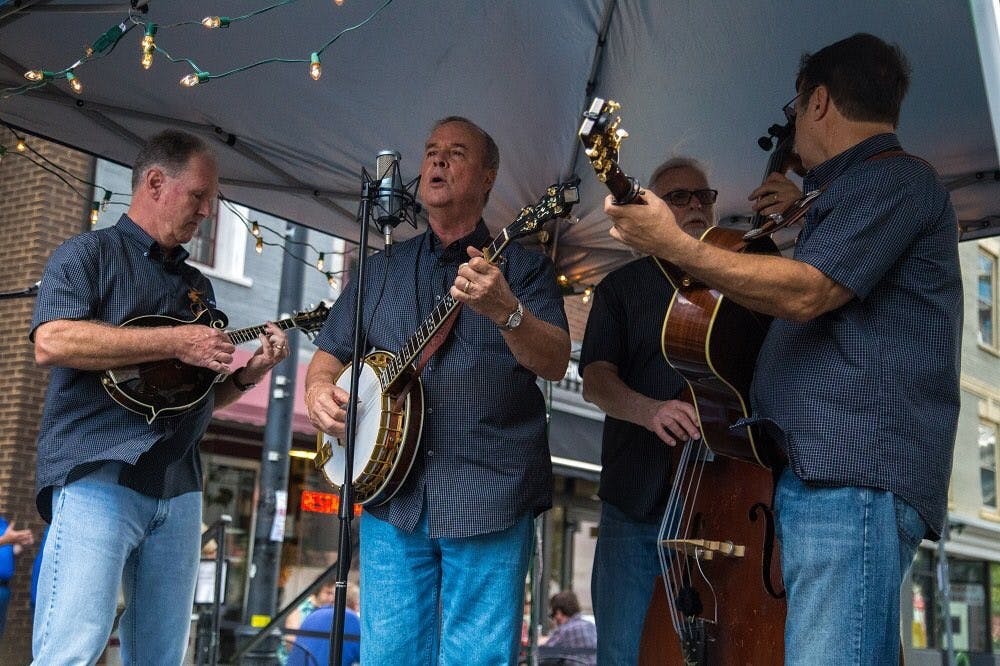Raleigh will host its next bluegrass event on a budget for those still looking for weekend plans — as the Wide Open Bluegrass Weekend Festival returns for the fifth year in a row.
The festival, which features more than 100 bluegrass bands performing on seven outdoor stages, offers participants a chance for a free or a more extensive bluegrass experience.
The Wide Open Main Stage element of the festival, taking place at the Red Hat Amphitheater, will feature a joint performance on Saturday by Steve Martin — actor and comedian — and North Carolina's very own Steep Canyon Rangers.
Hosted by the International Bluegrass Music Association, the festival attracts both performers and attendees from the local area and far beyond. Loren Gold, tri-chair for the local organizing committee for Wide Open Bluegrass, said the number of attendees has risen significantly from 140,000 in 2013, the festival’s first year in Raleigh, to almost 208,000 in 2016. Gold said about half of the attendees are local, a quarter are what he refers to as “day-trippers” and a quarter are overnight visitors.
Judy McDonough, a publicist for the IBMA, said despite some outdated stereotypes of the genre, bluegrass is not strictly Southern or American — but it's global. She said Bluegrass 45, a band from Japan, is celebrating its 50th anniversary by playing on the Wide Open Main Stage this Saturday.
Beyond the Steep Canyon Rangers, there will be plenty of other familiar faces onstage this weekend, including The Infamous Stringdusters and Béla Fleck.
Streetfest, the free element of the festival, will feature two of UNC’s own lecturers in the Department of Music, Hank Smith and Russell Johnson, members of Hank, Pattie & the Current and The Grass Cats, respectively. Gold said these two musicians were part of the original Local Organizing Committee for the event and played a key role in bringing the festival to Raleigh.
McDonough said North Carolina's long tradition of bluegrass enriches the partnership between IBMA and the city of Raleigh in an especially meaningful way.
"It’s almost as if bluegrass and its love is part of the fabric of the state itself," she said. "And I think that’s one of the reasons that attendance at the festivals on the weekends in particular has taken off so much, because there’s a familiarity and a love of the music already."




